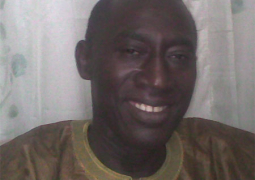The Fourth Africa Conference on Sexual Health and Rights commenced on Monday in a plenary session featuring HE Girma Woldegiorgis, President of the Federal Democratic Republic of Ethiopia, Republic of Ethiopia. The issues of reproductive health and sexual rights "are very close to my heart," said President Woldegiorgis, who called for increased access to sexual and reproductive health and rights for the poorest and most vulnerable. President Woldegiorgis called for attendees to "focus on people's needs rather than numbers," and how countries can achieve the goals outlined in global and regional agreements, including the Millennium Development Goals and the Maputo Plan of Action. The plenary session was attended by more than 300 advocates, funders and policymakers working on sexuality and reproductive health and rights in
Other plenary speakers included Commissioner Bience Phiomina Gawanas, Commission of the Department of Social Affairs for the African Commission; Dr. Tedros Adhanom, Minister of Health for
In his remarks, Dr. Tedros Adhanom, Minister of Health for
More than 22.4 million people are living with HIV/AIDS in
Young women are particularly vulnerable, with two young women infected for every man. Speakers highlighted the need for men and women to commit to achieving gender equality in order to better protect women and girls from gender-based violence, sexual coercion, and other factors that make them particularly vulnerable to HIV infection. Dr. Esiet called on attendees to create an African Men's Charter to work with men on achieving gender equity. "Men have to realize that women are equal partners in the future," said Dr. Esiet.
Speakers at a pre- session media briefing also highlighted the need to foster an open and honest dialogue about sexuality and increase advocacy against restrictive laws and attitudes that infringe on human rights in the context of sexuality. "In many democratic societies, there are privacy laws that don't allow people to open a mailbox door," said Tewodros Melesse, Regional Director of IPPF Africa Regional Office. "So how can you open a bedroom door? Leave the bedrooms alone- it's none of your business." The Conference, held this week at the UN ECA, is part of a long-term process to build and foster regional dialogue on sexual rights and health in order to influence policy, particularly that of the African Union and its bodies. The Conference is being convened under the auspices of the Africa Federation for Sexual Health and Rights, the regional representative body of the World Association for Sexual Health, and hosted by the International Planned Parenthood Federation-Africa Regional Office in collaboration with Action Health Incorporated in
Read Other Articles In Article (Archive)
Father denies murdering son
Feb 10, 2011, 12:21 PM
NGO Forum calls for respect, promotion of human rights
Apr 18, 2012, 1:52 PM


